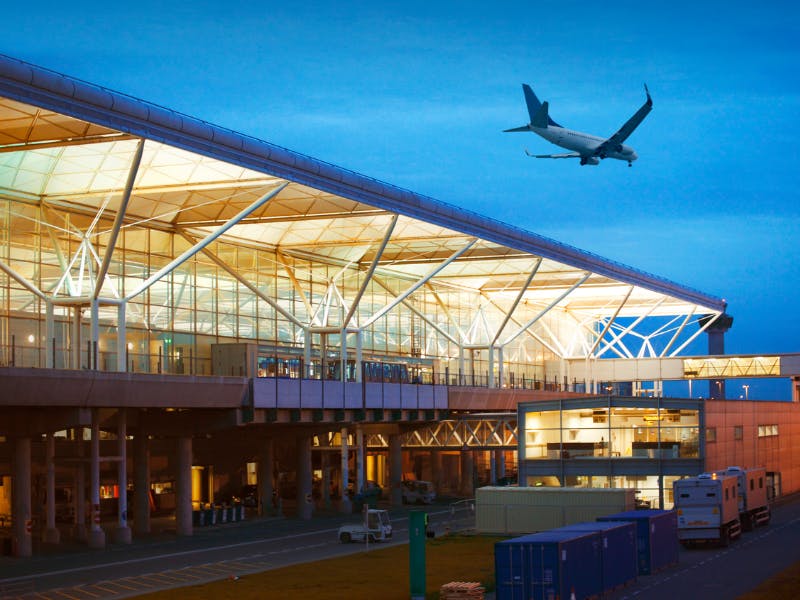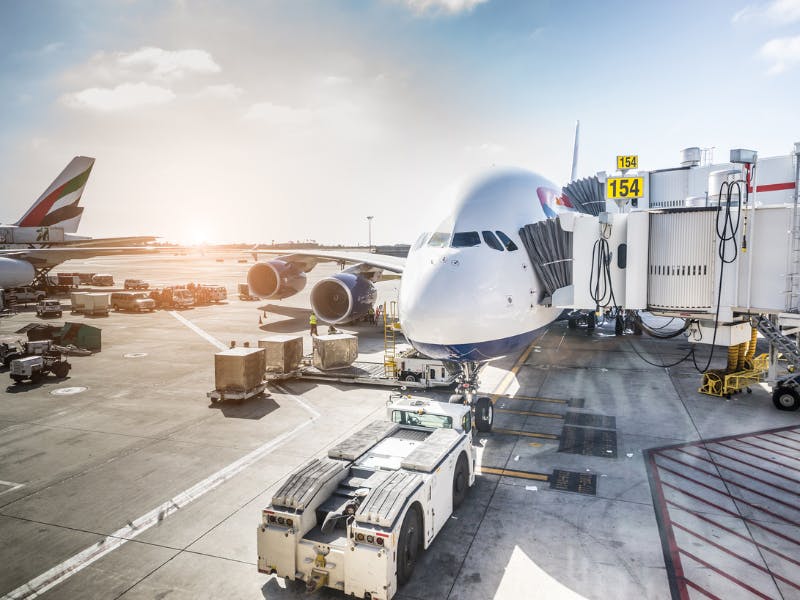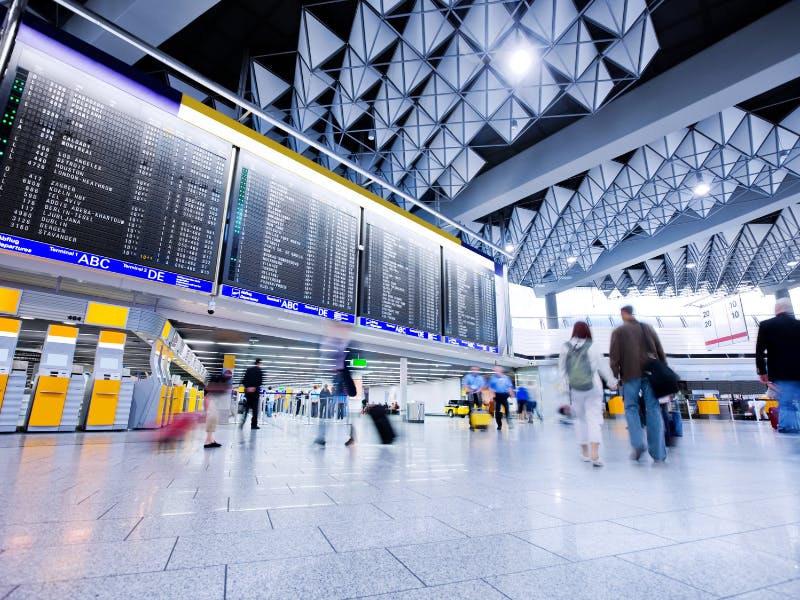Go the extra mile
Towards a cooler planet
The role of airports to reduce carbon emissions in aviation
11 July 2024
Airports are not merely transit hubs; they play a crucial role in the broader ecosystem of reducing co2 emissions in aviation. As the aviation industry strives to reduce its environmental footprint, airports are actively transforming their operations, infrastructure, and policies to support this critical goal for the future of air travel.
Sustainable infrastructure development in airports
Modern airports are embracing sustainable infrastructure development strategies:
- Energy-efficient terminals: Utilising energy-efficient building materials, LED lighting systems, and renewable energy sources like solar panels reduces energy consumption and associated emissions.
- Sustainable ground handling equipment: Replacing traditional diesel-powered ground handling equipment with electric or hybrid alternatives significantly reduces emissions at airports.
- Water conservation initiatives: Implementing rainwater harvesting systems, water-efficient landscaping, and wastewater treatment facilities minimises water usage and environmental impact.
These infrastructure developments contribute to a cleaner airport environment and pave the way for more sustainable air travel.


Policy changes driving airport sustainability
Policy changes and regulatory measures are further pushing airports towards sustainable practices:
- Carbon pricing mechanisms: Implementing carbon taxes or emissions trading schemes incentivises airports to reduce their carbon footprint.
- Sustainable aviation fuel (SAF) incentives: Policies that encourage the use of SAFs at airports, such as tax breaks or blending mandates, can accelerate their adoption and reduce overall emissions.
- Noise pollution regulations: Implementing stricter noise pollution regulations promotes the adoption of quieter aircraft and operational practices.
These policy changes create a supportive framework for airports to invest in sustainable solutions and contribute to a cleaner aviation industry.
Innovative environmental initiatives at airports
Airports worldwide are implementing innovative environmental initiatives:
- Waste management: Implementing waste segregation, recycling programs, and composting initiatives reduces landfill waste and promotes resource recovery.
- Biodiversity conservation: Integrating green spaces, wildlife habitats, and sustainable landscaping practices within airport grounds supports local biodiversity.
- Community engagement: Partnering with local communities and stakeholders on sustainability initiatives fosters collaboration and promotes environmental awareness.
- Passenger emissions offsetting: Partnering with companies like CarbonClick, airports can engage with passengers to educate them on their personal carbon footprint associated with their travel and give them the option to offset the emissions.
These diverse initiatives showcase the multifaceted approach airports are taking to minimise their environmental impact.

Challenges and opportunities for airports in sustainability
While significant progress is being made, challenges remain:
- High upfront costs: Investing in sustainable infrastructure and technologies can be expensive, requiring effective financing mechanisms and long-term planning.
- Collaboration and coordination: Successful implementation often requires collaboration between airlines, ground handling companies, and government agencies.
- Balancing efficiency and sustainability: Optimising airport operations for both efficiency and environmental impact requires careful planning and innovative solutions.
Despite these challenges, airports have the opportunity to become leaders in sustainability, promoting positive change within the aviation industry and beyond.
Case studies: Airports leading in sustainability
Several airports are exemplary models of sustainable practices:
- Amsterdam Airport Schiphol (AMS): Schiphol aims to be carbon-neutral by 2030, focusing on renewable energy sources, electric ground handling equipment, and noise reduction initiatives.
- Manchester Airports Group (MAG): MAG consists of Manchester, Stansted and East Midlands Airports with their long-term focus on the energy efficiency of buildings, the purchase of low carbon electricity, and addressing residual emissions through high quality ‘Gold Standard’ carbon offsets. They aim to be net-zero carbon by 2038 and transition to a fleet of ultra-low emissions vehicles by 2030.
- Singapore Changi Airport (SIN): Changi Airport prioritises energy efficiency, water conservation, and waste management, while actively engaging with stakeholders on sustainability initiatives including offsetting their staff's carbon emissions through CarbonClick.
These case studies demonstrate the diverse approaches airports can adopt to achieve their sustainability goals.
Summary
Airports are playing an increasingly critical role in reducing carbon emissions in aviation for a cooler planet. Through infrastructure development, policy changes, and innovative environmental initiatives, airports are actively reducing their environmental footprint and contributing to a cleaner aviation industry.
Next steps
- Support airports that prioritise sustainability initiatives.
- Advocate for policies that encourage sustainable practices in the aviation sector.
- Engage with airport sustainability programs and initiatives.
How can CarbonClick help?
CarbonClick can collaborate with airports in several ways:
- Carbon footprint measurement and assessment: We can help airports measure their carbon emissions and identify areas for reduction.
- Developing carbon offsetting strategies: We can assist airports in implementing carbon offsetting programmes to compensate for unavoidable emissions.
- Engaging stakeholders and passengers: We can collaborate with airports to raise awareness about sustainability initiatives and engage passengers and airport staff in carbon offsetting programmes.
By working together, CarbonClick and airports can accelerate the transition towards a cooler planet with the aviation industry setting the standards for sustainable practices globally.
17 South Street
Auckland 1010
New Zealand
info@carbonclick.com- -
- X
Sign up. Be inspired. Get clicking.
Subscribe now to stay up to date with CarbonClick, carbon offsetting and climate action.
By signing up you agree to our Privacy Policy.


